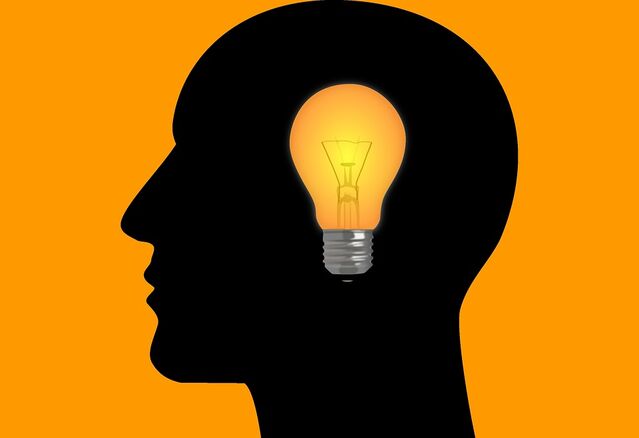Dementia
10 Odd and Fun Activities That Keep Your Brain Healthy
Recent research highlights these surprising ways to protect your brain.
Posted February 25, 2021 Reviewed by Kaja Perina

- Dementia is not a disease itself but a collection of symptoms, including difficulty reasoning, learning new things, performing daily activities, and memory loss.
- Although age is a risk factor for dementia, dementia is not a normal part of aging.
- Researchers have linked a variety of activities to maintaining a healthy brain and preventing cognitive decline — from getting a flu shot to spending time in a sauna.
Paths to Brain Health
“Dementia” may seem like a gloomy topic but preventing it can be satisfying and, at times, even fun.
In my previous blog, I summarized the extensive research behind 12 lifestyle choices that can protect your brain. In brief, these “Terrific Twelve” are: 1. Reduce alcohol consumption. 2. Avoid head injury. 3. Breathe clean air; stay in on polluted-air days if possible. 4. Provide access to early-childhood education. 5. Correct mid-life hearing loss. 6. Monitor and reduce high blood pressure. 7. Maintain a healthy weight. 8. Quit smoking; avoid inhaling second-hand smoke. 9. Find help for depression and anxiety. 10. Prevent social isolation by connecting with others. 11. Exercise and stay active. 12. Manage and/or reverse diabetes. These twelve lifestyle factors account for a whopping 40% of dementias.
This blog post will focus on an additional 10 surprising and pleasurable actions anyone can take to reduce the risk of dementia. But first—a few definitions and an overview.
"Dementia" is a collection of signs and symptoms that includes memory loss; difficulty reasoning, solving problems, and learning new things; inappropriate behavior; and difficulty performing many activities of daily living. It is not a disease itself but is caused by an underlying disease such as Alzheimer’s. (Other major causes of dementia include vascular problems, neurodegenerative disorders, and Lewy body dementia.) “Mild cognitive impairment” (MCI) is a condition involving less severe problems with thinking and remembering. Good news: MCI does not necessarily progress to dementia.
While age is a major risk factor for dementia, dementia is not a normal part of aging, according to the Mayo Clinic. That’s why it is so helpful to realize that we can all make good lifestyle choices right now that can help our mental functioning as we age.
10 More Odd and Pleasurable Activities That Your Brain Will Love
In addition to the 12 key prevention measures above, researchers have documented various unusual and fun activities that can keep our brains healthy. Here are 10 activities that seem to help, according to recent studies. (Note of caution: Most of the studies cited below show a correlation between the activity and cognitive health but do not prove causality.)
1. Sing out. Past research has shown that playing a musical instrument has positive effects on cognitive functioning, especially cognitive flexibility, the ability to switch the mind’s focus from one thought process to another. Now, new research from the University of Helsinki reveals a chorus of benefits from singing. According to the researchers, elderly singers have better cognitive flexibility than non-singers and also experience a mood lift from singing together. In addition, participants in choral groups develop a strong feeling of togetherness as they sing, which can protect them from the mind-sapping effects of loneliness that many people experience as they age.
2. Try sauna bathing. Strangely enough, recent research indicates a strong relationship between Finnish sauna bathing and prevention of Alzheimer’s disease. (PT blogger Arash Emamzadeh describes the research in his blog here.) Why might sauna bathing lower dementia risk? The mechanisms could include the activation of protective proteins by the heat, better cardiovascular functioning, reduced inflammation, better sleep, reduced stress, and increased relaxation. (Warning: The extreme heat would not be healthy for every person. Consult with your doctor.)
3. Practice tai chi. Tai chi is a slow-motion exercise for self-defense and meditation. Is tai chi more beneficial than other forms of exercise when it comes to preserving mental function? According to the Harvard Health Letter, it is: “In a meta-analysis of 20 studies on tai chi and cognition, tai chi appears to improve executive function—the ability to multitask, manage time, and make decisions—in people without any cognitive decline. In those with mild cognitive impairment, tai chi slowed the progression to dementia more than other types of exercise and improved their cognitive function in a comparable fashion to other types of exercise or cognitive training.”
I recently took an introductory tai chi class via Zoom. I discovered that while tai chi is gentle physical exercise, it does give your brain a tough workout.
4. Cultivate a positive attitude toward aging. Negative attitudes about aging have a striking effect on memory and on health in general. In studies by Yale researcher Becca Levy, “older people exposed to … positive messages about aging showed better recall and more confidence in their abilities than those exposed to negative ones.” Other research showed that those with positive views of aging had better balance, did better on memory tests, walked faster, recovered from disabilities more quickly, and lived, on average, seven and a half years longer. Fighting one’s own internalized ageism is a constant battle but one well worth the effort. And why not savor all the good things about aging?
5. Get a flu and/or pneumonia vaccination. Research in 2020 indicates that getting a flu or pneumonia vaccination, in addition to the obvious benefits, may provide protection against Alzheimer’s disease. Too good to be true? Apparently not.
After investigating a large data set of 9,066 individuals, researchers found that those who received flu vaccinations had a decreased risk of cognitive decline. To summarize: "...people that consistently got their annual flu shot had a lower risk of Alzheimer's. This translated to an almost 6% reduced risk of Alzheimer's disease for patients between the ages of 75-84 for 16 years.”
In another study of 5146 people aged 65 and above who had been vaccinated against pneumonia, “The researchers found that pneumococcal vaccination between ages 65-75 reduced risk of developing Alzheimer's by 25-30% after adjusting for sex, race, birth cohort, education, smoking, and number of G alleles.” (“G alleles” are known risk genes for Alzheimer’s.)
6. Cultivate positive emotions and optimism. According to this research summary, people who feel enthusiastic and cheerful have less memory decline than others without their positive outlook. These results are in line with studies that show that an optimistic outlook is linked with longer life, better health, and better health habits. On the other hand, repetitive negative thoughts are linked to a higher risk of Alzheimer’s, as reported here. The contrast between these two studies illustrates the probable link between good mental health and good brain health.
Fortunately, a positive outlook, optimism, and happiness are not innate qualities that some have and others do not. They are skills that can be taught. In one such skill-based program, participants practiced eight skills and reduced feelings of depression by 16% and anxiety by 14%. (Coincidentally, all participants were caregivers, responsible for loved ones with dementia.)
7. Add berries, apples, and green tea to your diet. Consuming foods with flavonoids, substances that reduce inflammation, are associated with a reduced risk of dementia. Eating berries and apples, and drinking green tea may have protective benefits against Alzheimer's, says this 2020 study from Tufts. Happy note: Dark chocolate is also rich in flavonoids. And if you don't care for the taste of green tea...
8. Drink coffee. Coffee may provide even more than a mood lift and short-term concentration boost. According to a long-term study of 1409 people, moderate coffee drinking (3-5 cups/day) in mid-life reduced the risk of Alzheimer's disease in later life.
9. Get a good night’s sleep. While researchers are still trying to determine the relationship of sleep to the prevention of dementia, many studies report that sleep seems to clear the brain of harmful waste products that are associated with Alzheimer’s disease. (Research summary here.) To benefit, follow a good sleep routine as outlined in this checklist by WebMD.
10. Find a purpose. Finally, find a reason for living, whatever that reason is for you — giving emotional support to your extended family, volunteering, working at a worthwhile job, engaging in a hobby or creative activity, developing a business that uses your strengths and skills. While the relationship between "purpose" and dementia prevention is still unclear, having a sense of purpose has been linked in research to better mental and physical health, longer life, and less chronic pain and illness. People with a strong sense of purpose are more able to handle the ups and downs of life, according to the Mayo Clinic. While “purpose” may not fall neatly into the category of “fun,” feeling that your life has meaning provides motivation to make the lifestyle changes that will keep your mind, body, and spirit happy and healthy.
Takeaways
The research on dementia prevention is still evolving. While some of the activities listed above may seem trivial, they could provide clues to mechanisms underlying better mental health and better brain health. In addition, most are enjoyable in themselves and have numerous health benefits apart from dementia prevention.
© Meg Selig, 2021. All rights reserved.
For more on healthy aging, check out my latest book, Silver Sparks: Thoughts on Growing Older, Wiser, and Happier.
References
Graff-Radford, J. & Lunde, A. M. (2020). Mayo Clinic on Alzheimer’s Disease and Other Dementias. Rochester, MN: Mayo Clinic Press, pp. 48 ff, p. 290-1.
Sing out. "Choir Singing Can Improve Cognitive Functioning Among the Elderly." ScienceDaily, 2.10.2021.
Sauna bathing. Emamzadeh, A. "Could Sauna Bathing Have Cognitive Benefits?" 2.6.2021. Psychologytoday.com.
Tai chi. Harvard Health Letter of 8.22.2019.
Attitudes/Becca Levy. Applewhite, A. This Chair Rocks: A Manifesto Against Ageism (2016). NY: Celadon Books. pp. 43, 114
Vaccination. "Flu, pneumonia vaccinations tied to lower risk of Alzheimer's dementia." ScienceDaily, 27 July 2020.
Positive outlook. “Positive Outlook Predicts Less Memory Decline,” Association for Psychology Science, 10/29/2020.
Berries, apples, green tea. "More berries, apples and tea may have protective benefits against Alzheimer's," ScienceDaily, May 5, 2020.
Coffee and dementia risk. Hendrick, B. “Coffee Strong Enough to Ward Off Dementia?" WebMd, Jan. 16, 2009.




